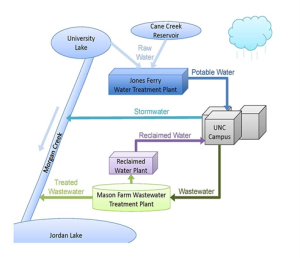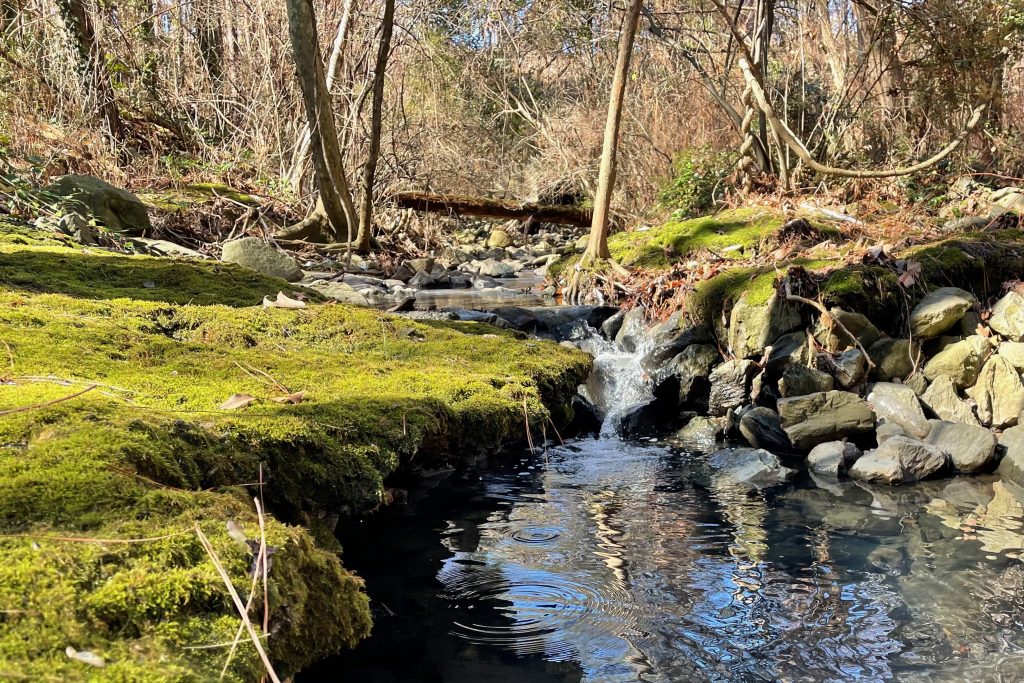Water Plan: Introduction
Water Sustainability: A Growing Challenge
Sustaining water quantity and quality for people and the environment is a growing challenge. UNC-Chapel Hill works to ensure clean water supplies and functioning ecosystems for future generations of Tar Heels. Our challenges around water sustainability include growing demands for finite water resources, increasing sources and types of contaminants and a changing climate disrupting water supply and delivery.
The UNC-Chapel Hill Water Plan, written in 2022, examines our accomplishments, goals and visions for the future. We’ve engaged the University and community in discussions around the plan and to establish targets and metrics to gauge success.
UNC-Chapel Hill’s Water Sources
 UNC-Chapel Hill’s water sources are comprised primarily of potable and reclaimed water purchased from OWASA. TheJones Ferry water treatment plant is supported by two reservoirs and distributes potable water to campus. The Mason Farm reclaimed water plant provides treated wastewater to select campus facilities via a purple pipe network. As with other campus utilities, the primary water utility infrastructure is not owned or managed by the University. The campus water cycle for primary potable water, reclaimed water, wastewater, and stormwater is shown in the figure to the right.
UNC-Chapel Hill’s water sources are comprised primarily of potable and reclaimed water purchased from OWASA. TheJones Ferry water treatment plant is supported by two reservoirs and distributes potable water to campus. The Mason Farm reclaimed water plant provides treated wastewater to select campus facilities via a purple pipe network. As with other campus utilities, the primary water utility infrastructure is not owned or managed by the University. The campus water cycle for primary potable water, reclaimed water, wastewater, and stormwater is shown in the figure to the right.
In addition to the primary sources, over a dozen cisterns collect up to 350,000 gallons of rainwater at multiple locations across campus. The rainwater captured in these cisterns displaces potable water needed to flush toilets and provide irrigation. These systems, as well as dual plumbing, are included as appropriate. Any campus project that increases impervious surface area must pay to hold the increased stormwater that would result.
UNC-Chapel Hill’s experience with innovative stormwater measures, such as green roofs, permeable pavement, preventative drain maintenance, stormwater wetland construction, and stream daylighting, has contributed to the North Carolina design guidelines for stormwater. Implementation of over 250 stormwater control measures has increased the University’s downstream water quality per the Lake Jordan Rules for nutrient management. One example of a successful stormwater control measure on campus is the Battle Grove stormwater project which won a 2018 NC Source Water Protection award for both implementation and education.

